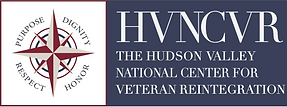Our Story
The Origins of the Hudson Valley National Center for Veteran Reintegration. After kayaking the Hudson River from Albany to Battery Park in September 2020, Kevin Keaveny, then 51, walked to the 9/11 Memorial in Lower Manhattan. He joined ceremony marking completion of a 315-mile, three-man kayak trip to raise awareness of veteran suicides and homelessness. Keaveny’s life that day had come full circle. He’d not returned to the site since being activated to serve there as a National Guardsman during the tragic months following 2001 terrorist attack on the World Trade Center. For his service in the ruins of the Twin Towers that Keaveny was subsequently awarded the Army Commendation Medal for risking his own life to reach people “who needed his aid, and to search for those who could not ask for help.”
In the years that followed, Keaveny continued to serve with the New York Army National Guard. During those years, married and the father of four, he was deployed to Afghanistan in 2011 and served there for a year with the Vermont National Guard. But the man who returned home was not the same young 31-year-old who had risked his life saving others in Lower Manhattan ten years before. He was now a 41-year-old Afghanistan Combat Veteran. “I was depressed and tremendously disconnected when I got back home,” Keaveny remembers. “I was surrounded by people who loved me and whom I loved, but it didn’t matter. I was trapped in deep loneliness.” To others, including his wife, children, and previous friends, he was unapproachable, and he knew it.
He knew he had to do something; he just didn’t know what. And then “it”—what to do, how to heal—serendipitously found him one day while he was mindlessly surfing the internet: a set of plans for building a boat. So, he decided to start building one in his backyard: “I didn’t know it when I started it,” Keaveny explains, “but it was occupational therapy for me.” What he also didn’t know at the time he began building his first boat was that he was also building the foundation for what has become the Veteran Wooden Boat Workshop, now one of many life-affirming programs conducted by today’s Hudson Valley National Center for Veteran Reintegration (HVNCVR) on Enterprise Drive in Kingston.
As he continued building his boat, his relationships with his family improved: “The kids would come out and hang around with me while I was working, even the dog was warming up to me again.” Keaveny began to believe that boat building and woodworking were, in fact, therapeutic: “I thought if this is helping me and my family, maybe it could help others.”



He developed a friendship with another combat veteran in late 2015. Like Keaveny, Frank Reggero wanted to serve our country in a different capacity: the result was the planning for and creation of the Veteran Wooden Boat Workshop in 2016. A real impetus to the Workshop’s growth occurred in 2017 when it was sponsored by American Legion Post 72, Saugerties, N.Y. They provided fiscal sponsorship, materials and supplies, a meeting place, and most importantly, the recognition that helped officially establish the Workshop as a much needed and viable entity.
“More veterans had, literally, come on board, and because we were growing,” remembers Keaveny, “we needed more space.” He spent a great amount of time preparing his “sales pitch” for Workshop space to Andrew Rothlein, owner of the Rondout Yacht Basin, a fellow combat Veteran with the Maine Corps. “I didn’t get a chance to do much of my schtick begging for space, maybe a sentence or two,” Keaveny laughs, “and Andy interrupted me and simply said, ‘Okay, let’s do it!’” The actual building of kayaks began in 2017, and in 2019, six veterans in the Workshop became the first to launch their own handcrafted kayaks.
With Keaveny and Reggero as designated Co-Founders, HVNCVR was officially recognized as a 501(c)3 nonprofit organization in February 2019. Everything the Center has achieved since, its programs and services, is based on its veteran-driven foundation, stemming from the Wooden Boat Workshop, and a testament to the life-affirming need for veteran-to-veteran peer support in our community.
For Keaveny, his passion to help “people who need his “aid” hasn’t changed since 9/11. Within the ranks of those who receive his help today, through the HVNCVR and its intergenerational corps of trained veteran volunteers, are homeless and suicidal veterans and those suffering from PTSD, substance abuse, combat guilt, and other physical and emotional disabilities associated with combat—plus the many more veterans who only need to reconnect with their “tribe,” experiencing again the camaraderie and support they received from others while on active duty.


